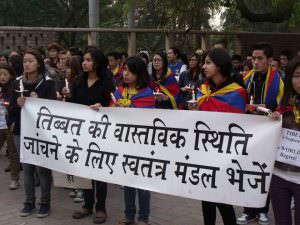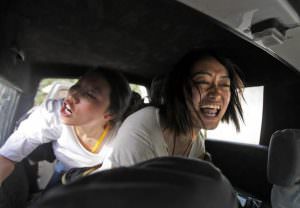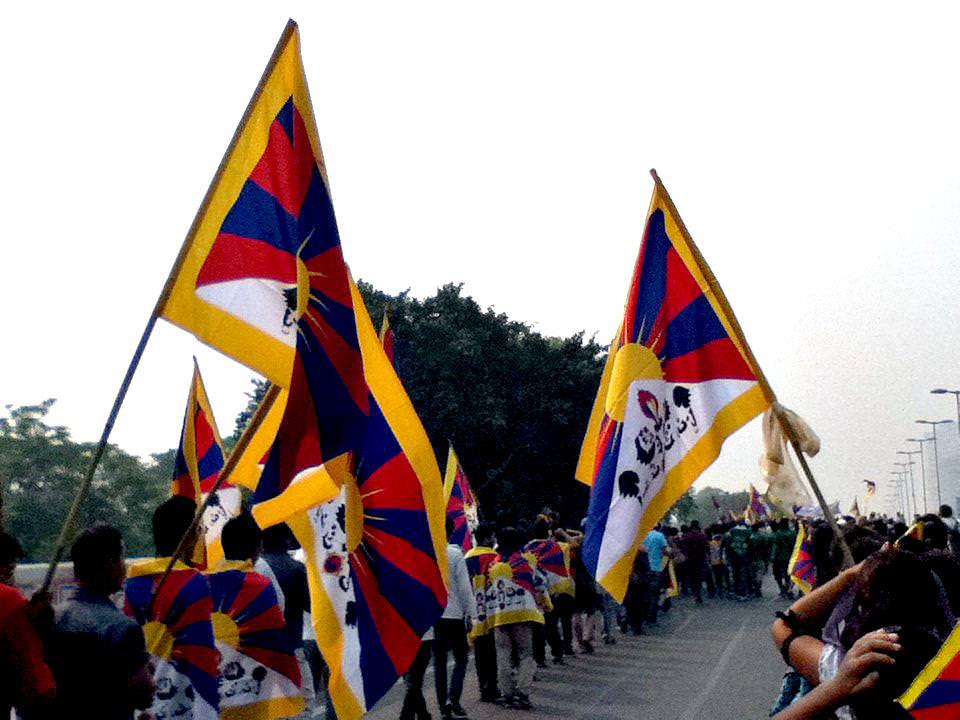When I recall those post-dinner conversations as a young girl when suddenly everyone would talk about what is going wrong with the nation, I’d notice that the women in the house would either keep quiet or their opinions would not be valued as much. But I’d always watch my sister cutting her way into the conversation, asserting her own ideas which dissented from the long held beliefs of the men in our family. It would lead to a long, heated debate between two polar opposites supporting different political parties or ideologies, and end with the conclusion that she is a stubborn child.
I mostly stayed silent as I was growing up and refrained from speaking up because I felt nobody would hear me out anyway. I also started associating politics and political discussion with aggressive speech that I did not wish to be a part of. I may have been apolitical then, but today I understand that whether we like it or not, politics affects every inch of our being from the moment we are born.
whether we like it or not, politics affects every inch of our being.
Belonging to an all women feminist institution not only put me in a political space but also drove me to understand the structures that we operate in. However, the first political stance that I personally and publicly took was when I joined a student activist group that works in solidarity with the Tibetan people for human rights and freedom in Tibet – Students for a Free Tibet. “Tibet ki azadi, Bharat ki suraksha”, rang the slogan as I marched the streets of Jantar Mantar. It was the first time I felt I was asserting my political fundamental right.

At a protest for a free Tibet in my university campus.
I still remember the night when I heard about Tibet’s occupation for the first time, when one of my Tibetan friends shared snippets of her life in Tibet and how she was sent to India. Her parents sent her here so that she could have a proper education without Chinese censorship and surveillance. She along with other kids had to hide in barrels inside trucks as they were being transported. For her, it has been thirteen years since she last saw her parents. She told me it was hard for her to comprehend their language as her Tibetan got standardized. Although Tibetans coming from Tibet are forbidden to use Chinese apps to prevent discovery by Chinese government, she finally succumbed to WeChat in order to communicate with her family. She showed me their pictures, and the furrows on her parents’ countenance were enough to tell me the years she had lived in separation. It moved me deeply.
I, for one, was affected at various levels. I had never seen violence firsthand but my friends had been through perturbing experiences. I was also educated in the history and politics of Chinese occupation of Tibet and their motives behind it. I learned about the geographical positioning of Tibet and how its resources were being exploited that affects the entire world in return. Moreover, when I learned that by being a supporter I could help bring awareness or even contribute to the remotest effort in the various campaigns that somehow could make a little difference, I thought about the friends I could help.

Me with my friend Choeyang on Tibetan Independence Day
Back in 2012, there was a mass protest held ahead of the then Chinese President Hu Jin Tao’s visit to India that I could not go to, where Jamphal Yeshi, a Tibetan youth, set himself on fire. My Tibetan friends came back that evening all silent. The next day, they told me they had seen Yeshi’s burning body in front of their eyes and could not get his image out of their heads. It was a reminder for them that Tibet is still “burning” under Chinese rule and they had to do something for their country.
They left college early to protest at the venue where Hu Jin Tao was visiting. All Tibetans were kept under watch by the police to avoid any disruption. Majnu Ka Tila, the Tibetan colony and the Tibetan Youth Hostel had been sealed and no one was allowed to leave the premises. My friends, including a few other Tibetans who were staying outside these places were still free to move. They knew they would be arrested for protesting that day. I waited for their news all evening and was told they had been moved to Tihar jail.

My friends Dechen & Lhamo being detained by the police.
They spent three nights there and I wondered what crime had they committed by just voicing their opinion. I questioned our democratic space that gives them refuge but does not allow them freedom of expression. The next day, my entire class was stirred seeing their pictures being manhandled by the police in the newspaper, and their faces screaming out in desperation. I understood how we take our freedom for granted that day.
I wondered what crime had they committed by just voicing their opinion.
It’s true that not all of us have the luxury to not care, and be apolitical. Most often, unless we directly experience something, we do not care about it. I never realised that my citizenship could also be a privilege. But now I do. For me, it’s also a choice to be an activist and assert my voice politically. But it is not a choice for my friends. By the virtue of their very existence, they become partakers of their country’s political struggle.
I remember how hopeless I felt as a young girl being excluded from political discussions, perhaps because the men being part of the debate believed they knew everything that was going wrong in politics. But none of them actively engaged to bring about any difference. There is a stereotyped image of men with their cups of chai following a dialogue concerning the political domain while women are largely associated with domestic gossip.
However, being part of a political movement was not only empowering but helped me realize my role as a political citizen. I remember how my family was initially put off-guard realizing my active role with SFT. My mother waited for my dad to convince me out of it. Anything beyond discussion on socio-political issues made them vulnerable. “Politics is dangerous,” they continually affirmed. They worried that I would be brainwashed, but I knew I wasn’t breaking any laws, only using my privileges to help others.
not all of us have the luxury to not care, and be apolitical.
Today if I am silent over armchair discussions on currents affairs, it does not matter because I believe in taking action. I realize it is all a part of the development process and my parents have rested their case. As for me, I like to share my opinions on matters that concern me. One of them shall remain the same until I see a Free Tibet and I could visit my friends’ homes with them.
Also Read: Of Chaos In IIT Madras And Politics In Educational Institutions
About the author(s)
An idealist who feeds on compassion, travel and good company. A film enthusiast, a poet, writer, activist and feminist.





Dear Purandhya,
Thank you for your thought provoking article. I found it very moving.
Here is a video clip of a song BURNING IN THE MOUNTAINS on self immoation https://www.youtube.com/watch?v=vwff-xmnBiA by Jane Alston.
Thubten in Montreal, Canada